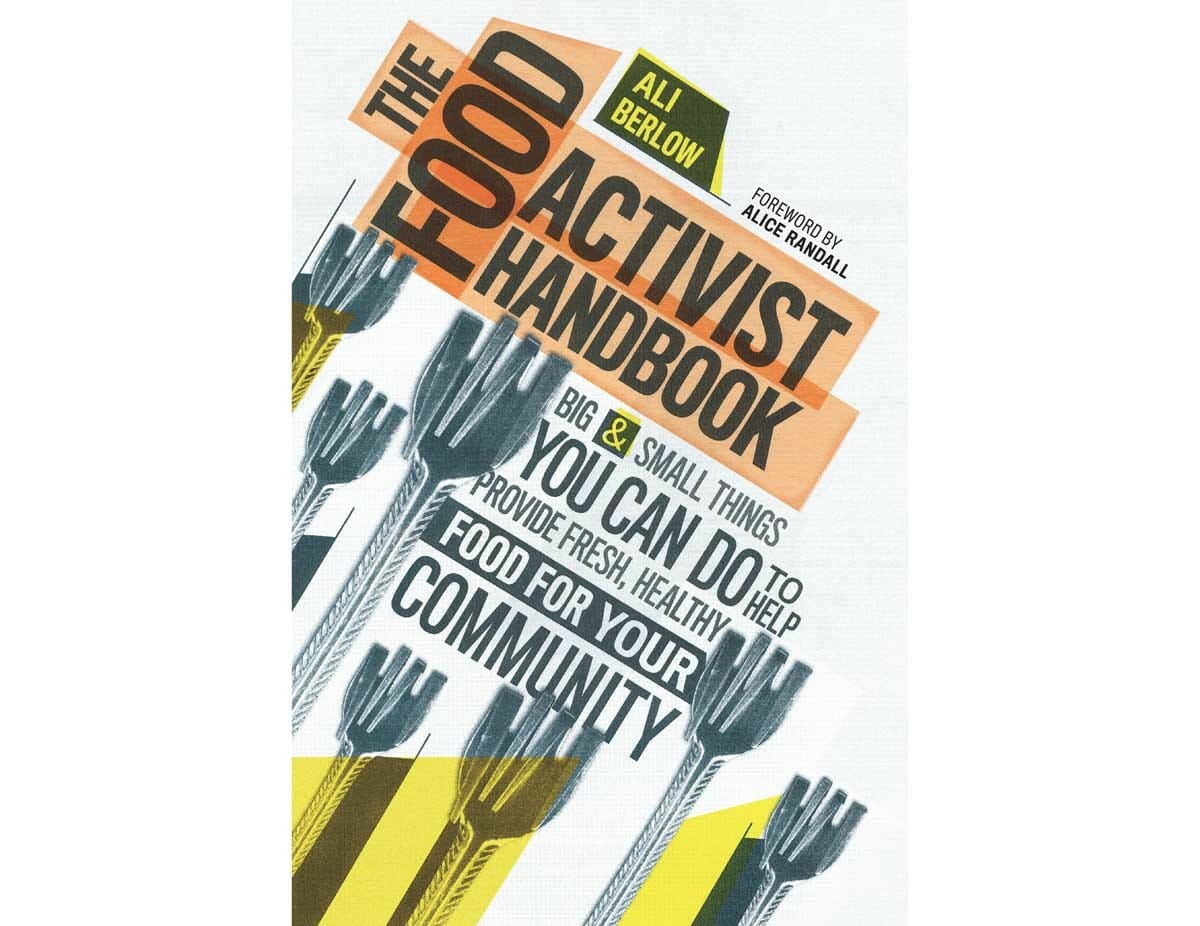How to build a better community through food, according to author Ali Berlow.

Part instruction manual, part manifesto, and part community success digest, it offers advice and examples designed to make communities, and thus the world, places where farmers thrive and food is delicious. Since the idea that local agriculture matters is not a new one, there are plenty of great projects to show off, and there’s plenty of information about what works.
Each chapter gives advice about how to educate your community on where food comes from (farm-to-school programs are a good start), agricultural policy, finding land and reaching out to media and elected officials, plus Berlow offers resources to help get local food in your child’s school cafeteria and tips for setting up a community garden or an aquaponics facility. The information is presented clearly in short vignettes, but not oversimplified – long enough to get some detail but short enough that you can read two or three in 10 minutes or so.
The most inspiring part, though, is a series of blurbs scattered throughout the book that spotlight farm programs across the country organized by people who believe in reforming our food system at a grassroots level. For example, a parade of cows in Brattleboro, Vermont, put the value of agriculture on display for thousands of people, and a jail gardening program in Fremont, Ohio, produced 375 pounds of food that was donated to local food pantries.
Though this book is heartening and thorough, there are some things worth pointing out: A few suggestions tend toward the political-but-not-agricultural (“wage peace, grow food. Turn guns into farm tools,” from a list of in-brief suggestions on page 17, for instance), there’s excerpted material from various farm support and education organizations that are useful when presented together but probably available online, and some statistics aren’t cited (one example: a statistic about the number of farm-to-school programs in the U.S. on page 34).
Still, you’ll be able to use the knowledge gathered here in your own neighborhood, whether it’s a big city or a wide open space. And it’s sometimes hard to get started, or easy to make excuses – so it’s nice to have a handbook.